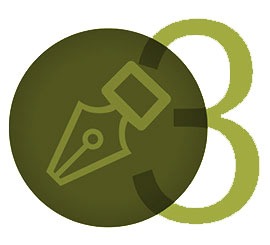Quick Links
Overview
URAC, the country’s pre-eminent health care accrediting body offers our new Designation for Measurement-Based Care (MBC), designed to improve outcomes for patients, especially those with Mental Health and Substance Use Disorder (MH/SUD) diagnoses. This designation can be added to URAC accreditation and certification programs, including:
Measurement-Based Health Care
MH/SUD has been a growing challenge across the health care landscape and COVID-19 has only exacerbated the pre-existing issues. In the United States, the suicide rate is the highest on record and the opioid crisis continues apace, with deaths up 400 percent. MH/SUD diagnoses act as a multiplier for other medical diagnoses and can increase treatment time, intensity and cost. Identifying behavioral disorders early is critical to effective intervention; however, some studies show approximately eleven years’ lag between onset of behavioral health symptoms/initial diagnosis and behavioral health treatment.
As we confront the stigma of MH/SUD diagnoses, access to care is a significant issue which have wide reaching societal and workforce impacts. MBC promotes earlier diagnosis and more effective treatment resulting in 20-60 percent better clinical outcomes. URAC has taken a leadership position with its new MBC Designation to help improve MH/SUD diagnosis and care in both primary and specialty care.
Regular and systematic collection of a patient’s symptoms promotes evidence-based care. Valid and reliable assessment tools are used throughout the course of treatment and deliver vital information to providers to inform the effectiveness of treatment plans. Assessments address symptoms occurring in most common behavioral health conditions, including:
- Depression
- Bipolar disorder
- Anxiety disorders
- Post-traumatic stress disorder
- Schizophrenia and other psychotic disorders
- Suicide (screening and risk assessment/mitigation)
- Substance Use Disorders
The best instruments are practical to administer, interpretable, reliable and sensitive to change. This information can serve as effective feedback that informs the care team to either continue or seek an alternative plan of care. Patients and providers benefit by limiting clinical inertia, and pursuing alternative treatment to drive effective patient outcomes.
Additionally, payers, currently require MBC if a non-psychiatric medical practice delivers psychiatric collaborative care. Further, providers and health systems that provide collaborative care can receive reimbursement for the core components of the model, including behavioral care managers who assist in coordinating and administering the MBC assessment tools.
Measurement-Based Health Care Designation
URAC’s MBC Designation Program consists of a focused set of standards that allow a URAC-accredited or certified organization to demonstrate excellence in health care delivery, especially for the treatment of MH/SUD conditions. It is an elective designation that enhances URAC accreditation and/or certification.
Examples of URAC's Measurement-Based Health Care Designation Standards
1: Evidence-Based Self-Assessment
The organization engages in timely evidence-based patient self-assessment at each clinical encounter.
1-1: Self-Assessment Data
The self-assessment process includes:
- Gathering structured quantifiable data describing the patient's perceptions about psychiatric symptoms
- Enabling the clinician to compare current symptom severity to past symptom severity
- Informing the provider's evaluation of the clinical effectiveness of the current treatment
- Promoting accountability for treatment outcomes
2: Symptom Rating Scale
The standardized symptom rating scale is designed to produce reliable symptom severity data.
2-1: Symptom Severity Data
The rating scale(s) that in use are:
- Supplemental to clinical interviews
- Current, interpretable, and readily available during the clinical encounter
- Clinically actionable
- Culturally validated in low-income and minority populations
- Stored in electronic health records in such a way that it is easily extractable
3: Classification of Symptom Severity
Changes in symptom severity are classified into clinically meaningful categories.
4: Treatment-to-Target
Guidelines are employed to enable development of individualized plans of care and enable identification of patients that achieve remission.
5: Quality Improvement
The organization incorporates MBC into performance process measures, outcomes evaluation and quality improvement efforts.
Download the Measurement Based Care Standards At A Glance.
Measures
The organization may choose to report on any of the exploratory measures that are included in this designation.





